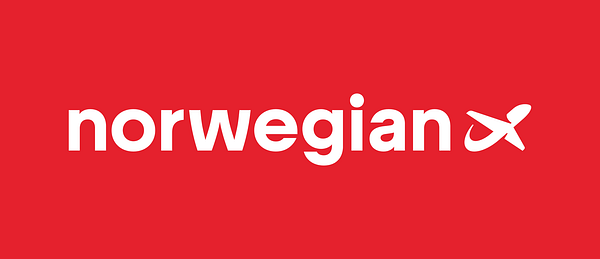
Press release -
Norwegian continues to reduce emissions with upgraded technology – up to 200,000 tons per year
Norwegian continues to reduce emissions with new technology and new aircraft. The upgraded weather service provided by AVTECH Sweden AB, can reduce CO2 emissions by an additional 10,000 – 15,000 tons per year. In the past few years, Norwegian has taken several steps to contribute to a more sustainable aviation industry and when combined these initiatives contribute to an annual CO2 reduction of up to 200,000 tons.
The weather service by AVTECH provides Norwegian’s pilots with advanced data, enabling them to optimize the flight paths for improved fuel efficiency and reduced emissions.
Norwegian has reduced 16,000 tons of CO2 emissions per year since the cooperation with AVTECH started in 2018. The company’s latest product, Aventus Cruise Optimizer, can further reduce CO2 emissions by 10,000-15,000 tons per year. The fuel saving measures that Norwegian has adopted combined with utilizing the latest technology in flight planning and operations has reduced the company’s annual emissions by up to 200,000 tons.
“During the test project there was a marked efficiency improvement in the planning of flight paths which resulted in further fuel- and emissions reductions. Each kilogram of fuel saved makes a difference. At Norwegian, we’re actively working to implement new technology in our modern and fuel-efficient fleet to continue reducing emissions,” says Stig Patey, Manager Fuel Saving at Norwegian.
The new and upgraded Cruise Profile Optimizer has been developed to further optimize flights and analyzes more data than the previous product. The optimizer calculates the most fuel-efficient altitude depending on the prevailing winds and aircraft performance, including analyzing the number of passengers, distance, altitude and speed. In short, the more data thatis provided, the more fuel-efficient flight paths can be flown, which in turn produces less emissions. In addition, the pilots receive real-time information which makes it possible to adjust the altitude if the weather conditions change during the flight.
The upgraded weather service has already been implemented on Norwegian’s Boeing 737-800 fleet.
By the end of 2019,Norwegian implemented SkyBreathewhich is another fuel- and emission reducing tool.TheSkyBreatheapplication leverages Big Data algorithms developed through an EU-funded Clean Sky Project. Norwegian reduces emissions by 140,000 tons per year with SkyBreathe.
” We’re very pleased that our cooperation continues to benefit Norwegian by reducing both fuel consumption and emissions. We look forward to future cooperation with more innovative projects,” says David Rytter, CEO of AVTECH Sweden AB.
Norwegian actively works for a more sustainable aviation
Norwegian actively works to reduce environmental impact from aviation. New aircraft and new technology are the most important measures an airline can undertake to reduce emissions. By having one of the youngest and most fuel-efficient fleets in the world, Norwegian har reduced emissions by 33 percent since 2009 and we are continuing to reduce emissions with several initiatives. For more information about Norwegians sustainability work, please read more here.
Topics
Norwegian in the UK and Ireland:
- Norwegian carries almost 6 million UK passengers each year from London Gatwick, Edinburgh and Manchester Airports to 30 destinations worldwide
- Norwegian is the third largest airline at London Gatwick, with 4.6 million yearly passengers, and with more than 1,000 UK-based pilots and cabin crew
- In 2014, Norwegian introduced the UK’s first low-cost, long haul flights to the U.S. - the airline now flies to 11 U.S destinations, Buenos Aires and Rio de Janeiro from London Gatwick
- Norwegian is the only airline to offer free inflight WiFi on UK flights to more than 30 European destinations and 13 long-haul destinations.
- The airline has one of the youngest aircraft fleets in the world with an average age of 3.8 years, including next-generation Boeing 787 Dreamliner, Boeing 737 MAX and Boeing 737-800s
- Norwegian has been voted ‘Europe’s best low-cost carrier’ by passengers for six consecutive years at SkyTrax World Airline Awards from 2013-2018, along with being awarded the ‘World's best low-cost long-haul airline’ in 2015, 2016, 2017, 2018 and 2019
- Norwegian Reward is the airline's free to join award-winning loyalty programme offering members CashPoints and Rewards that reduce the cost of Norwegian flights


